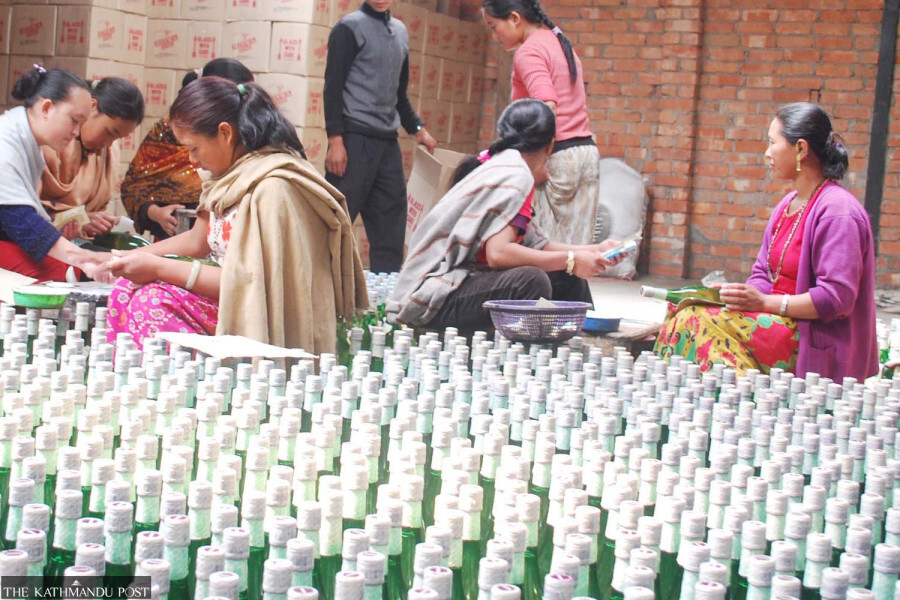
Kathmandu, Nepal - The Nepalese government has approved a new policy aimed at boosting the contribution of Micro, Cottage, and Small Industries (MCSEs) to the national economy. The policy, approved by the Cabinet on December 13th, seeks to create an entrepreneur-friendly environment, improve coordination among government levels, and mainstream marginalized communities.
Key Policy Objectives:
Boosting Production: The policy emphasizes creating an entrepreneur-oriented environment to enhance production along the value chain.
Intergovernmental Coordination: It calls for strengthened collaboration between federal, provincial, and local governments to develop and promote MCSEs.
Skill Development: The policy recognizes the need for improvements in the education system to produce a skilled industrial workforce.
Export Promotion: A key focus is on increasing the export of MCSE-produced goods, particularly strengthening the traditional handicraft industry for export markets.
Addressing Challenges: The policy acknowledges the challenges faced by MCSEs, including weak infrastructure, limited access to finance and technology, and a lack of skilled manpower.
Challenges and Concerns:
Policy Implementation: Experts express concerns about the effectiveness of policy implementation, citing frequent changes in government.
Economic Headwinds: The current economic climate presents significant challenges, including a sluggish economy, low business confidence, high operating costs, and trade restrictions imposed by India.
Raw Material Dependence: Nepal's reliance on imports for raw materials from India, China, and other countries poses a significant obstacle for MCSEs, exacerbated by unfriendly customs regulations and high taxes.
Limited Access to Finance: According to the Asian Development Bank, only 16% of MCSEs access bank credit, hindering their growth and expansion.
Policy Recommendations:
Improved Coordination: The policy emphasizes the need for effective coordination between federal, provincial, and local levels to streamline policies and avoid duplication of efforts.
Ease of Doing Business: Simplifying the industry registration process and improving access to enterprise advice services are crucial steps.
Skill Development & Technology Transfer: Providing training programs and facilitating access to modern technology are essential for enhancing productivity and competitiveness.
Financial Support: Subsidized loans and other financial incentives are necessary to support MCSEs and improve their access to capital.
Contribution of MCSEs to the Nepalese Economy:
Employment: MCSEs are a major source of employment, employing 2.74 million people, according to the National Economic Census 2018.
GDP Contribution: MCSEs contribute approximately 22% to Nepal's GDP, highlighting their significance to the national economy.
Informal Sector Dominance: A significant portion of the Nepalese workforce operates in the informal sector, with many MCSEs lacking formal registration and facing challenges in accessing formal credit and social safety nets.
Way Forward:
Multi-stakeholder Collaboration: Successful implementation of the policy requires strong collaboration between the government, private sector, development partners, and aid agencies.
Leveraging Migrant Worker Skills: The policy recognizes the importance of utilizing the knowledge and skills of returnee migrant workers to enhance the competitiveness of MCSEs.
Addressing Root Causes: Addressing the underlying challenges faced by MCSEs, such as limited access to finance, inadequate infrastructure, and a lack of skilled manpower, is crucial for their long-term sustainability and growth.
Conclusion:
The new policy represents a significant step towards revitalizing the MCSE sector in Nepal. However, its success hinges on effective implementation, strong intergovernmental coordination, and a supportive business environment. Overcoming the challenges faced by MCSEs requires a multi-pronged approach that addresses the needs of businesses at all levels, from micro-enterprises to small and medium-sized enterprises.
[Copyright (c) Global Economic Times. All Rights Reserved.]






























